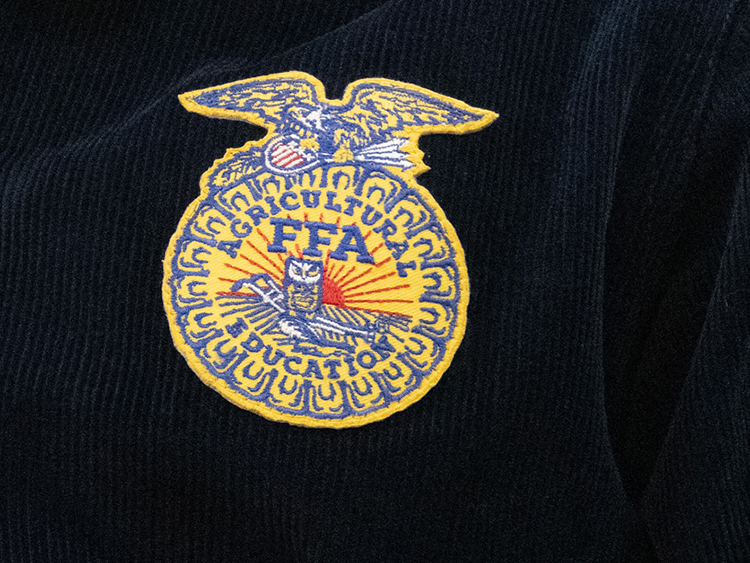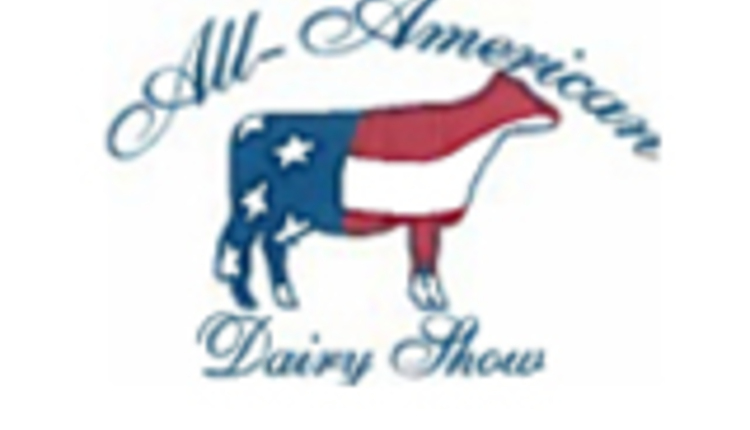
If you’re involved in agriculture, the chances are high that you’ve seen FFA emblems around your community and over social media this week. After all, we are now wrapping up National FFA Week, the time when chapters around the country celebrate agricultural education and all it has to offer.
The FFA emblem is one of the most recognizable logos in the industry, if not society, for its distinct and meaningful construction. It adorns the iconic blue corduroy jackets that proudly identify FFA members, as well as their classrooms, awards, and events. You may already be familiar with the sentiment behind each element of the emblem, but if not or you need a refresher, here’s a reminder of what FFA members and supporters are representing when they wear or use the FFA emblem:
- A cross-section of an ear of corn makes up most of the emblem’s outline. In this way, it provides a foundation for the emblem and signifies unity, as corn has been a foundational crop for our country and is grown in every state.
- Atop the ear of corn is an eagle grasping an American flag shield and arrows. This element symbolizes the freedoms we enjoy as U.S. citizens to pursue the future of agriculture.
- Within the emblem, the rising sun signifies progress and the promise of a new day full of opportunity.
- A plow is placed in the field below the rising sun to represent labor and tillage of the soil. These principles are the backbone of agriculture and our entire country.
- Sitting on the plow is an owl, a symbol of wisdom. For FFA members, it represents the knowledge needed to be successful in agriculture.
- The words “agricultural education” and “FFA” complete the logo to signify the role of learning and leadership in agriculturalists.
The ear of corn, rising sun, plow, and owl all also serve as important symbols for specific chapter offices and are referred to in opening ceremonies. Their significance transcends a simple logo and is intended to guide members in their personal and professional pursuits. But did you know there were other symbols considered for the FFA emblem that aren’t part of that tradition today?
According to a blog from the National FFA Organization, one alternative icon was a horn of plenty. Ancient Greek myth says that image symbolizes prosperity, wealth, and abundance. Early FFA members also considered including a lamp of knowledge to signify academic excellence.
Instead of a plow, the emblem almost featured a simple spade to represent hard work. After opting for a more modern approach with the plow, there was debate around whether it should only be resting on the ground, to symbolize the reaping of life, or in the ground, to signify receiving truth. Today, the plow appears to be in the soil.
The eagle was also a point of contention as some individuals wanted to omit it for a standard circular logo. Adding the national symbol was eventually agreed upon, though there were discussions and some confusion around whether it should be holding three arrows, five arrows, or 13 arrows, for the original colonies. The emblem today features five arrows.
Since 1928, the organization has greatly evolved alongside agriculture itself, but the emblem has largely remained the same. Agriculturalists in those days chose the features of today’s emblem purposefully, and these symbols continue to guide members and supporters in the attitudes necessary to meet agriculture’s needs.

Katelyn Allen joined the Hoard’s Dairyman team as the Publications Editor in August 2019 and is now an associate editor. Katelyn is a 2019 graduate of Virginia Tech, where she majored in dairy science and minored in communication. Katelyn grew up on her family’s registered Holstein dairy, Glen-Toctin Farm, in Jefferson, Md.











